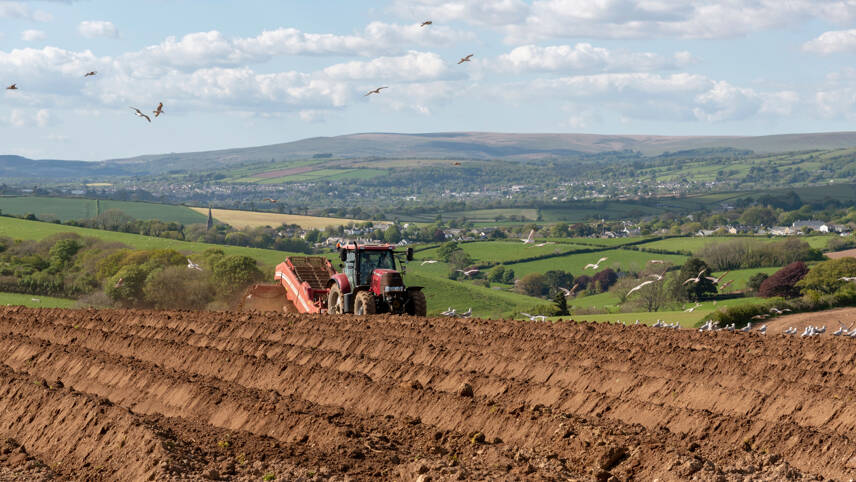Register for free and continue reading
Join our growing army of changemakers and get unlimited access to our premium content

The new report from cross-party think tank Demos, supported by McCain Foods, has called for the Government to improve policies and frameworks to boost agricultural practices.
The Government has committed to leaving nature in a better state for the next generation but, according to its own independent environmental watchdog, is nowhere near on track to deliver this ambition.
Regenerative farming practices, the report argues, could help catalyse nature restoration in the UK, improve food security and boost profits for British farmers. In turn, this would help drive the UK toward its nature and climate targets.
Sir Robert Goodwill, Chair of the Environment, Food and Rural Affairs Select Committee and former Defra minister, wrote the report’s foreword, stating: “As farmers adapt to the post-Brexit agricultural support system, feel the increasing effects of climate change and face evermore volatile international supply chains, we must accelerate the adoption of regenerative farming.”
The report lists some key policy recommendations to help make regenerative farming practices the norm.
It calls on Defra to significantly increase the Sustainable Farming Incentive (SFI) ‘management payments’ to include an option for additional sums to cover investment costs as they switch to new farming practices. The scheme should be guaranteed for at least seven years to enable those practicing regenerative farming to restore profits without relying on government payments.
The report also calls for a “Regenerative Farming Task Force” and peer-to-peer “Regenerative Farming Learning Groups” to be set up. These should be led by Defra and bring together representatives of farming, consumers, rural communities, environmentalists and other government departments to help evaluate and deliver policy-guided solutions.
The recommendations are based on polling of more than 1,500 survey participants and discussions with farmers and policy experts. The survey found that 70% aren’t familiar with regenerative farming practices. However, 69% of Conservative voters and 68% of Labour voters are in favour of its widespread adoption.
Key benefits highlighted by survey respondents were improved biodiversity (41%), reduced emissions (40%) and farming being more resilient to climate change (36%).
Policy revamp
At the start of the year, green groups called on the UK Government to incentivise farmers and land managers to contribute to the net-zero commitment through tree planting methods, rather than focusing on carbon capture technologies, stating that it could save taxpayers £100bn by 2050.
The Green Alliance claimed that farmers and landowners can be huge contributors to the UK’s net-zero transition by transforming farmland into carbon sinks. The report suggests that around 10% of the “least productive farmland” in the UK would be managed for nature restoration projects such as wetlands, woodlands and extensively grazed grasslands by 2030. This would then rise to 33% by 2050, when the net-zero commitment will need to be met.
The report claims that farming with agroecological methods would need to increase from 3% of farmland currently to 60% by 2050.
One of the key recommendations of Chris Skidmore’s Net-Zero Review is for the Government to outline a land-use framework aligned to the net-zero target this year. See edie’s timeline of all the key policy recommendations from the review here.


Please login or Register to leave a comment.